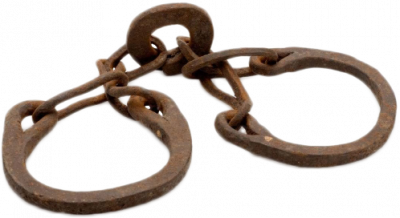The Slavery Abolition Act 1833 (3 & 4 Will. IV c. 73) provided for the gradual abolition of slavery in most parts of the British Empire. This Act of the Parliament of the United Kingdom was passed by Earl Grey's reforming administration and expanded the jurisdiction of the Slave Trade Act 1807 and made the purchase or ownership of slaves illegal within the British Empire, with the exception of "the Territories in the Possession of the East India Company", Ceylon (now Sri Lanka), and Saint Helena. The Act was repealed in 1998 as a part of wider rationalisation of English statute law; however, later anti-slavery legislation remains in force.
Slavery in Britain existed prior to the Roman occupation and until the 11th century, when the Norman conquest of England resulted in the gradual merger of the pre-conquest institution of slavery into serfdom, and all slaves were no longer recognised separately in English law or custom. By the middle of the 12th century, the institution of slavery as it had existed prior to the Norman conquest had fully disappeared, but other forms of unfree servitude continued for some time.
British merchants were a significant force behind the Atlantic slave trade between the sixteenth and nineteenth centuries, but no legislation was ever passed in England that legalised slavery. In the Somerset case of 1772, Lord Mansfield ruled that, as slavery was not recognised by English law, James Somerset, a slave who had been brought to England and then escaped, could not be forcibly sent to Jamaica for sale, and he was set free.
An abolitionist movement grew in Britain during the 18th and 19th century, until the Slave Trade Act 1807 abolished the slave trade in the British Empire, but it was not until the Slavery Abolition Act 1833 that the institution of slavery was abolished.Despite being illegal, modern slavery still exists in Britain, as elsewhere, usually following human trafficking from poorer countries.

1834Aug, 1
Slavery is abolished in the British Empire as the Slavery Abolition Act 1833 comes into force.
Choose Another Date
Events on 1834
- 29Apr
Second voyage of HMS Beagle
Charles Darwin during the second survey voyage of HMS Beagle, ascended the Bell mountain, Cerro La Campana on 17 August 1834, his visit being commemorated by a memorial plaque.[1] - 1Aug
Slavery Abolition Act 1833
Slavery is abolished in the British Empire as the Slavery Abolition Act 1833 comes into force. - 16Oct
Burning of Parliament
Much of the ancient structure of the Palace of Westminster in London burns to the ground. - 1Dec
Slavery Abolition Act 1833
Slavery is abolished in the Cape Colony in accordance with the Slavery Abolition Act 1833.

 English
English  español
español  français
français  português
português  русский
русский  العربية
العربية  简体中文
简体中文 